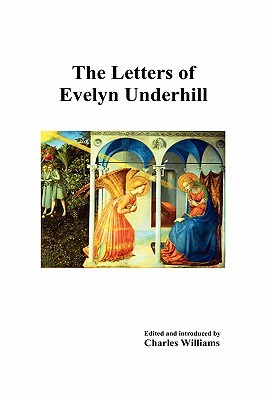
- We will send in 10–14 business days.
- Author: Evelyn Underhill
- Publisher: Benediction Books
- Year: 2008
- Pages: 320
- ISBN-10: 1849022402
- ISBN-13: 9781849022408
- Format: 15.2 x 22.9 x 2.2 cm, kieti viršeliai
- Language: English
- SAVE -10% with code: EXTRA
Reviews
Description
Evelyn Underhill (1875-1941) is widely recognized as the foremost contemporary authority on mysticism Her outstanding work
Mysticism
, published in 1911, presents a comprehensive approach to religious experience and has become a standard work. She came under the influence of Baron von Hügel and was guided by his spiritual direction. She herself acquired a reputation as a spiritual director and also conducted retreats. She was the first woman to give a series of theological lectures at Oxford.
Her letters here presented, beginning in 1899, portray a noble, learned Christian woman to whom the concept of sanctity was almost second nature. Her letters are simple, direct and full of spiritual insight. As Charles Williams points out in the Introduction, "She had - what so many religious writers have not - a real religious impartiality, a holiness of judgement, consistent with her own predilections but overruling them. Her natural efficiency may have played its part in this; it was as distasteful to her to be wrong intellectually as to be wrong morally. Taste, by itself, will not save souls, but taste may be a subsidiary instrument, and a taste for recognizing differences in souls is very useful both in recording sanctity and in encouraging sanctity. She was, in every way, revolted by jargon, and this remains true even if occasionally she herself seems to yield to it."
EXTRA 10 % discount with code: EXTRA
The promotion ends in 23d.07:42:53
The discount code is valid when purchasing from 10 €. Discounts do not stack.
- Author: Evelyn Underhill
- Publisher: Benediction Books
- Year: 2008
- Pages: 320
- ISBN-10: 1849022402
- ISBN-13: 9781849022408
- Format: 15.2 x 22.9 x 2.2 cm, kieti viršeliai
- Language: English English
Evelyn Underhill (1875-1941) is widely recognized as the foremost contemporary authority on mysticism Her outstanding work
Mysticism
, published in 1911, presents a comprehensive approach to religious experience and has become a standard work. She came under the influence of Baron von Hügel and was guided by his spiritual direction. She herself acquired a reputation as a spiritual director and also conducted retreats. She was the first woman to give a series of theological lectures at Oxford.
Her letters here presented, beginning in 1899, portray a noble, learned Christian woman to whom the concept of sanctity was almost second nature. Her letters are simple, direct and full of spiritual insight. As Charles Williams points out in the Introduction, "She had - what so many religious writers have not - a real religious impartiality, a holiness of judgement, consistent with her own predilections but overruling them. Her natural efficiency may have played its part in this; it was as distasteful to her to be wrong intellectually as to be wrong morally. Taste, by itself, will not save souls, but taste may be a subsidiary instrument, and a taste for recognizing differences in souls is very useful both in recording sanctity and in encouraging sanctity. She was, in every way, revolted by jargon, and this remains true even if occasionally she herself seems to yield to it."


Reviews